Life After Football
Where were you at in your professional life at the age of 28? Or, for the younger generation of readers, where do you see yourself when you are 28 years old? For anyone that is not a professional athlete, the average answer for some would be, finishing a masters or doctorial degree, starting a new business, establishing a Roth IRA, or even starting a family. Now ask this of an NFL player and he will say one word, retired.
The average age of retirement for a professional football player is 28. Granted, there are men who we have seen play way past that age, and some who should have stopped while they were ahead. Most people at this point in life still have 37 years of work ahead of them. If one retires at 28, he or she still has 2/3 of life left to fulfill. Sounds nice at first, but if you are a football player, once next year’s OTA’s start, and Nike did not send you a new uniform, reality sets in. And guess what? You are bored.
Life is what you make of it. Such a cliché statement, but it holds truth. Hopefully you were a player who was smart with your money throughout your employment and did not blow it all on McMansions and fun toys, among other things. Hopefully you were cautious and did not let fame get to your head. Hopefully you appreciated the privilege of playing for such a pristine sports league, and a well respected team (insert New York Jets here). These are all factors which one has control over. What about the factors that cannot be controlled?
The termination of an NFL player’s career can mainly happen two ways. The first is retirement. This is controlled because it is a player’s choice. The second is being cut, or waived for a more respectable term. Being a part of the Waiver Wire System is controllable to a point. A team’s final decision to waive a player (uncontrolled) is determined by the performance of the player (controlled). If the latter occurs, a player patiently waits until he is picked up by another team. In the unfortunate event he is not picked up, hopefully he has his college degree to fall back on and can continue life with a larger bank account to kick start his new journey.
What is the point I am trying to make here?
With respect to the current tragedies that have been making headlines in the world of the NFL, I think more attention needs to be focused on the after-life of a football player. Unfortunately sometimes it is too late to observe the effects of long-term injuries, and take corrective action. A player does not necessarily need to be injured or encounter high-impact collisions in order to be cared for. Everyone should walk away from employment with the NFL with some form of appreciation and care being shown towards them. I am not talking about monetary value here. I mean genuine support and guidance. Twenty eight years old, or even thirty five for that matter, still gives a person time to explore new opportunities in life. Colleges offer programs to graduating students and guide them with career placement. The NFL does offer something of similar stature.
Kudos go to Troy Vincent, the NFL’s Vice President for Player Engagement, and his aid in helping players prepare for the next life steps after football. According to an interview on blackenterprise.com, Vincent explains the three programs formulated to guide players.
- NFL Prep helps to identify problems sooner rather than later, and make improvements early in a players career. The preventative methods used range from explaining cause and effect scenarios, to tweaking physical movements on the field.
- NFL Life focuses on the player while he is currently active in the NFL.
- NFL Next prepares players for what’s to come. Another perk to these three programs is that the player’s family is also informed and involved. Vincent hopes to better a player’s quality of life by identifying what works best for him and his surroundings.
Shifting gears to the dark side in regard to the negative effects of high-impact injuries; I would like to commend my man, Ray Lucas. Every football fan knows the former number six Jet has not held back on sharing his experience of pain and strife with his addiction to prescription pain killers. Lucas admits the pain does not fully go away, and he still struggles every now and then. However, to accept the fact one has an addiction and then to ask for help is an accomplishment all on its own. He took a step back and realized all that life had to offer him and knew he had to turn everything around for the best. Now for the most part he is pain-free, both physically and mentally. Lucas uses his story as a precautionary example for other NFL players, and encourages them to check out www.TurnToHelp.com (www.utsandiego.com/news/2012).
Other notable football players have put their fame and knowledge to good use after playing for the NFL. Many players have formed charities and raised both money and awareness for a cause that has usually affected the player on a personal level. Boomer Esiason is a sports commentator and one of the hosts of the Boomer and Carton show. If you know me by now, you know this is my favorite show, and has helped me survive some tough morning commutes. He has also raised awareness about cystic fibrosis with his foundation, www.esiason.org. Ray Lucas is now a New York Jets commentator on Sports New York Television. You do not have to be retired to support a charity. The Jets are notorious for their recognition and support with charity work. Mark Sanchez supports the Juvenile Diabetes Research Foundation. Santonio Holmes raises money for Sickle Cell Disease, which, by the way, I am supporting this upcoming October 15th. Check out nyjets.com and JetNation.com for details.
If you were to take anything from this article, please understand that my focus is for fans and the average Joe, to understand that the life of a professional football player is not all glitz and glamour. They do something they love, and take risks not only for them, but for us, the audience as well. The next time you hear someone criticize the amount of money a football player makes, remind them of the underlying factors involved with the sport.
Taking hard hits is a part of the game, and accepting the high risk is par for the course. I am not advocating the commission enforce 97 more rules to soften the blow for players. We have enough flags being thrown in the game so there is no need to transition into flag football. I do not see ice hockey changing the rules every year. Every sport involves risks. Pick and choose your battles wisely and reap the benefits. Especially those of the NFL (insert New York Jets here).
Videos
News and Notes from First Two Days of Jets Training Camp









